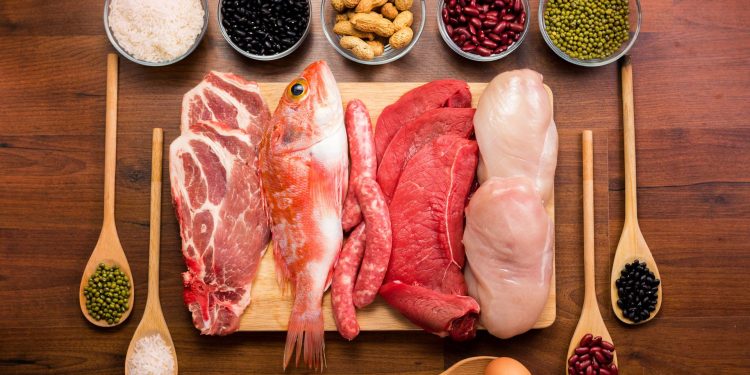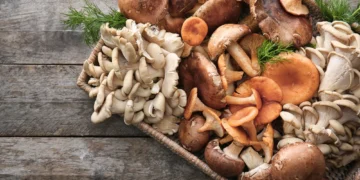Consuming adequate protein is essential for optimal health. The general recommendation is for an adult to consume between 0.6 and 0.8 grams of protein per kilogram of body weight. However, an individual’s exact protein requirements can vary depending on their age, body composition, and physical activity levels.
Protein is a necessary macronutrient and performs a variety of functions in the body. It is required for muscle growth and repair, enzyme and hormone production, DNA synthesis, and immune function. It’s also needed to maintain healthy hair, skin, and nails. Without enough dietary protein, some of these important bodily functions are compromised.
Thankfully, there are lots of great sources of protein that you can include in your diet without needing to reach for supplements. Below, we’ve covered eight of the best protein sources to consider, including both animal and plant-based foods.
Table of Contents
Fish
Pretty much every type of fish is high in protein but very low in saturated fat, making it a healthy choice. Fish, especially oily fish like salmon and sardines, is high in omega-3 fatty acids, the consumption of which has been associated with improved brain health, heart health, and eye health.
You can consume fish in a variety of ways. Cook a fish steak and pair it with some potatoes and vegetables, eat fish cakes or fish fritters, or mix some tuna into a creamy pasta bake.
Poultry
Chicken and turkey are high in protein but relatively low in calories and fat. They are versatile cuts of meat that you can use in a wide range of dishes. They taste great with lots of different sauces and spices, so you can create a flavorsome dish that provides your body with a high amount of protein.
Steak
Although it should be consumed in moderation due to its higher amounts of saturated fats than other protein sources, steak can be a good source of protein.
Whether you choose an American Wagyu steak or a different cut of this popular meat, you can provide your body with a complete protein (one that contains all nine essential amino acids) that is also abundant in heme iron, and vitamin A.
Beans
If you don’t consume meat, dairy, or both, or you want to include more plant-based proteins in your diet, beans and pulses should be at the top of your list.
There are so many different kinds of beans, including edamame, kidney, white, and black beans, all of which are rich in protein and a range of essential micronutrients. You can consume beans in chilli, burritos, salads, stews, and soups.
Seitan
Seitan is a meat substitute that is similar in texture and taste to tempeh. It is made from gluten, which is the most abundant protein in wheat, and has a slightly chewy texture and nutty taste. It’s great for use in stir fry dishes, burgers, and salads, and provides a meat-free, dairy-free protein source.
Tempeh
Made from fermented soybeans and originating in Indonesia, tempeh is a high-protein meat substitute that has a slightly nutty flavor. Due to being fermented, tempeh also contains probiotic bacteria, such as Lactobacillus and Bifidobacterium.
Probiotic bacteria reside naturally in the gut, but consuming probiotic-rich foods can support your natural gut microorganisms. In turn, these foods can support better digestive health and improve your immune function.
You can include tempeh is salads and stir-fry dishes or use it as a chicken substitute in burgers and snacks. It tastes delicious when grilled, baked, or fried, and offers a healthy alternative to higher-fat sources of protein like red meat.
Tofu
Tofu, sometimes called bean curd, is another excellent plant-based protein. As with tempeh, it is made from soybeans, but unlike the former, it has a softer, less chewy texture. Many people describe the taste of tofu as being creamy and relatively mild.
Tofu makes a great vegan substitute for eggs when you’re making a scramble. You can also cut it into chunks or slices and grill, bake, or fry it in a range of dishes. There are a few different types of tofu, including silken, soft, firm, and extra firm, enabling you to choose the right texture for your chosen dishes.
Greek or Icelandic Yoghurt
Compared with standard yogurt, Greek and Icelandic (or Skyr) yogurts are high in protein due to the processing methods used to make them.
Greek and Skyr yoghurts are produced by straining the extra whey out of the product, creating a more concentrated yoghurt. In turn, you get more protein per 100 grams of product, making it much easier for you to consume enough protein for your body’s needs.


 Home
Home









